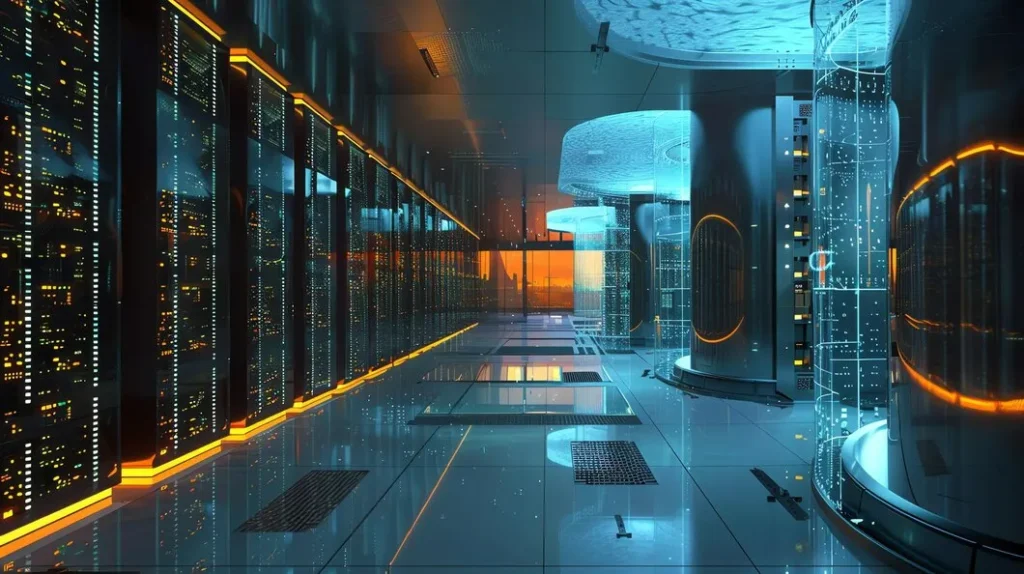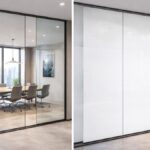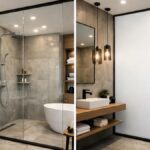As digital information grows exponentially, smart glass in data centers is emerging as an innovative solution for protecting sensitive data while optimizing energy efficiency. In a world where security and privacy are paramount, data centers are adopting smart glass technologies to better control visibility, reduce risks of visual breaches, and ensure secure and private environments for managing digital information.
Understanding the Role of Data Centers in Today’s Digital World
Data centers are the backbone of digital operations, managing data for everything from financial institutions to tech companies. With the rise in cyber threats and information theft, it’s vital that data centers adopt rigorous privacy and security measures. Smart glass in data centers addresses both by enabling adaptable spaces that can restrict visual access to sensitive areas.
How Smart Glass Aligns with Data Center Needs
The need for privacy and security is essential in data centers, which hold vast amounts of confidential data. These switchable glass aligns with these needs by allowing real-time control over visibility. With these glasses, data centers can manage visual access to secure areas, making it harder for unauthorized individuals to observe sensitive processes or data on display.
Types of Smart Glass in Data Centers
Several types of glasses are used in data centers, each offering unique benefits:
- Electrochromic Glass: Changes opacity when electric current is applied, offering gradual shifts in visibility.
- Thermochromic Glass: Adjusts based on temperature, ideal for maintaining privacy and minimizing heat gain.
- SPD (Suspended Particle Device) Glass: Quickly changes from transparent to opaque by aligning particles with electrical currents, providing on-demand privacy.
- PDLC (Polymer-Dispersed Liquid Crystal) Glass: Offers instant privacy by diffusing light, making it ideal for high-security areas in data centers.
Each of these types can be customized based on the specific needs of a data center, whether for energy efficiency, privacy, or security.
How Smart Glass Enhances Security in Data Centers
Smart glass technology is an effective solution for enhancing security in data centers by controlling visual access to sensitive areas.
Below are the key ways it contributes to improving security:
- Prevents Unauthorized Visual Access: The glass can instantly switch from clear to opaque, ensuring that unauthorized personnel cannot see sensitive data or equipment.
- Reduces Risk of Data Breaches: By obscuring screens and displays, it prevents accidental or unauthorized visual exposure of confidential information.
- Integrates Seamlessly with Security Systems: The technology can be integrated into existing data center security systems, allowing it to adjust opacity automatically in response to specific events, like access control breaches.
- Creates Secure Zones: Designated private areas within the data center can be made more secure by using this technology, which can be switched to opaque at a moment’s notice for privacy.
- Limits External Visibility: It reduces visibility from the outside, protecting the data center from external threats by hiding sensitive operations from public view.
- Tailored Security Solutions: The system allows for customized privacy levels in different areas of the data center, ensuring that high-security zones are fully protected from visual threats.
Smart Glass in Data Centers for Privacy Control
Privacy control is a key feature of smart glass in data centers. Unlike fixed walls or permanent fixtures, these glasses can shift its level of opacity as needed. This makes it easier to create private spaces for sensitive discussions or transactions within the data center, ensuring privacy without the rigidity of walls.
Energy Efficiency Benefits of Smart Glass in Data Centers
Data centers consume large amounts of energy, primarily for cooling systems. Smart glass can help manage this by regulating light and heat. Technologies like electrochromic and thermochromic glass limit solar heat gain, reducing the need for constant air conditioning. By lowering energy consumption, this type of glass in data centers helps contribute to a greener, more sustainable operation.
Design Flexibility Using Smart Glass in Data Centers
This glass offers flexibility that traditional privacy solutions do not. Data centers benefit from adaptive spaces, allowing for dynamic layouts that can be changed as needed. This is especially useful as data centers expand or update their setups to include additional equipment or sections. Smart glass in data centers supports a more modern, modular design approach, making it easier to adapt spaces over time.
Improving Data Center Work Environments
The comfort of employees in data centers is crucial, as they often work in high-security, enclosed spaces. Smart glass allows for control over lighting and visibility, creating an environment that is both private and comfortable. By offering natural light control, this glass can improve employee productivity and well-being, while still prioritizing data center security.
Recent Technological Advances in Smart Glass for Data Centers
With advancements in IoT and AI, smart glass can now be fully automated and responsive. This advanced glass technology can adjust automatically based on lighting conditions or external temperatures, making it even more efficient and user-friendly. This automation allows smart glass in data centers to provide privacy, security, and energy efficiency seamlessly, without requiring manual adjustments.
Challenges of Using Smart Glass in Data Centers
While this glass offers numerous advantages, it is not without challenges. Initial installation costs can be high, and integrating smart glass with existing data center infrastructure may present some technical challenges. Maintenance and potential repair costs are also factors to consider. Data center managers should weigh these against the long-term benefits.
Comparing Smart Glass with Other Privacy Solutions
While traditional blinds, curtains, or fixed walls offer some level of privacy, they lack the flexibility and adaptability of smart glass. This glass not only enhances privacy but also integrates with modern digital systems, providing a streamlined solution that other options cannot match. In comparison, smart glass in data centers offers a dynamic, energy-efficient alternative that can evolve with technology needs.
Conclusion
Smart glass in data centers represents a forward-thinking solution to security, privacy, and energy efficiency challenges. With its ability to adjust transparency on demand, smart glass gives data centers greater control over sensitive areas, reducing visual breaches and optimizing light management. As more data centers adopt sustainable technologies, smart glass is likely to become a core component in modern, adaptable data center designs.
For versatile, high-quality switchable glass solutions suitable for any space, Glasstronn provides cutting-edge options that enhance privacy, security, and style. Whether for data centers, office spaces, Glasstronn’s products bring a modern touch with the practicality of on-demand privacy. Contact us directly to discover how their solutions can transform your space.
FAQs
What types of switchable glass are used in data centers?
The main types are electrochromic, thermochromic, SPD, and PDLC, each offering distinct benefits for data center privacy and energy management.
How does smart glass contribute to energy savings in data centers?
By reducing solar heat gain, smart glass lowers cooling needs, making it a cost-effective and energy-efficient choice for data centers.
Are there limitations to using switchable glass in data centers?
Yes, costs and integration challenges can be concerns. However, the benefits in privacy and efficiency often outweigh these initial hurdles.
What’s the future outlook for switchable glass technology in data centers?
As the technology advances, switchable glass is expected to become more widespread, particularly as data centers focus on sustainability and energy efficiency.
How does smart glass improve privacy compared to traditional solutions?
Unlike fixed blinds or walls, smart glass can switch from clear to opaque instantly, providing privacy on demand and fitting seamlessly into modern security systems.





